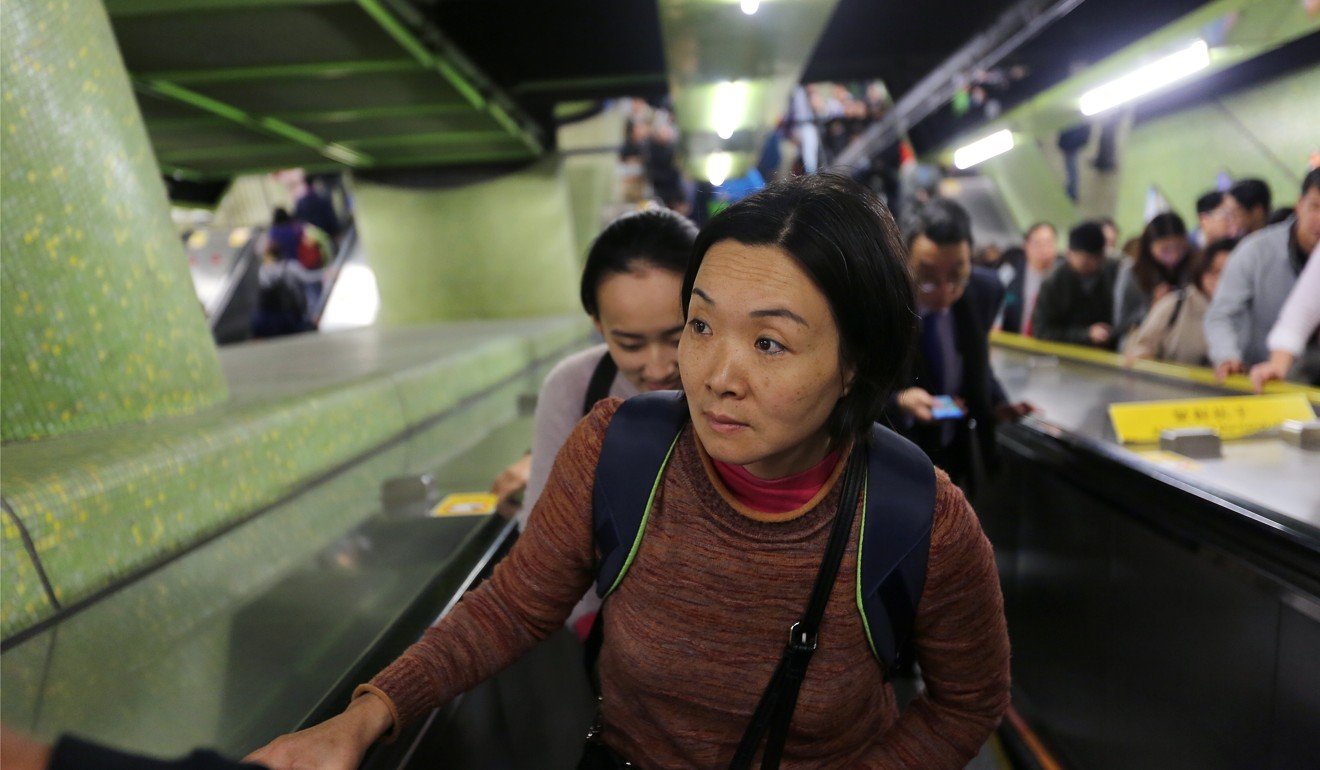
Blind Chinese teen violinist who commutes 12 hours for lessons in Hong Kong sets bar high for herself
Ding Yijie became blind at 15, but that didn’t dampen her positive spirit nor her passion for playing the violin. Every few weeks she travels from Foshan with her mother to study at the Hong Kong Academy for Performing Arts
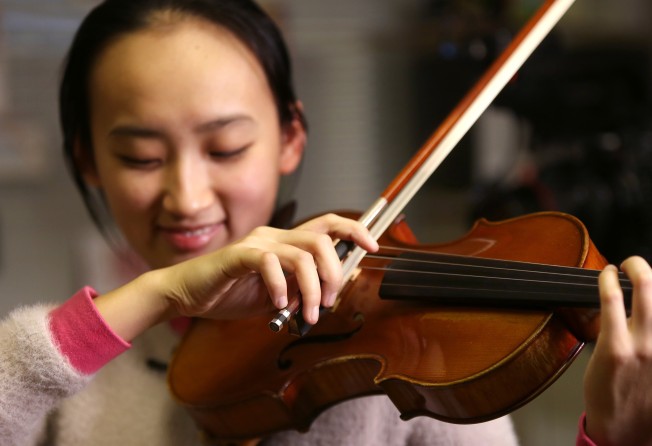
Making a 12-hour round trip from Foshan in Guangdong to Hong Kong for violin lessons is admirable – but doing it when you are blind is inspiring.
Ding Yijie, 17, has been making this arduous journey from the southern Chinese province since September 2017, when she began taking lessons with Professor Michael Ma at the Hong Kong Academy for Performing Arts in Wan Chai.
A classical violinist, she is allowed two visas a month to travel for the lessons in Hong Kong, so attends classes in the city every few weeks. It takes at least five hours to get to Hong Kong from her home in Foshan, and even longer to get back.

The biggest problem is always the traffic, particularly on their way back to Foshan, where on one occasion the trip home took the pair a gruelling 17 hours.
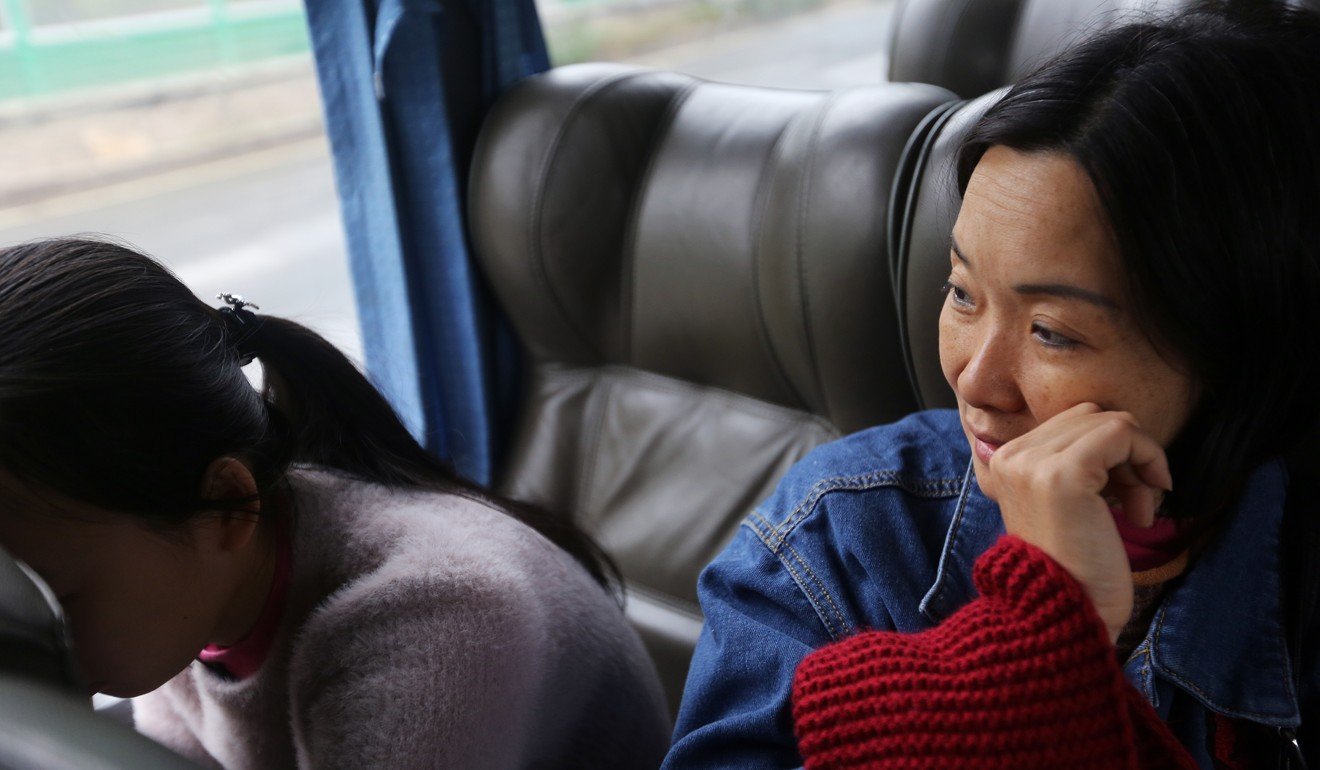
It was a fact not lost on Ma, who is head of strings at the academy’s School of Music, as it proved to him the lengths Yijie will go to for her love of playing.
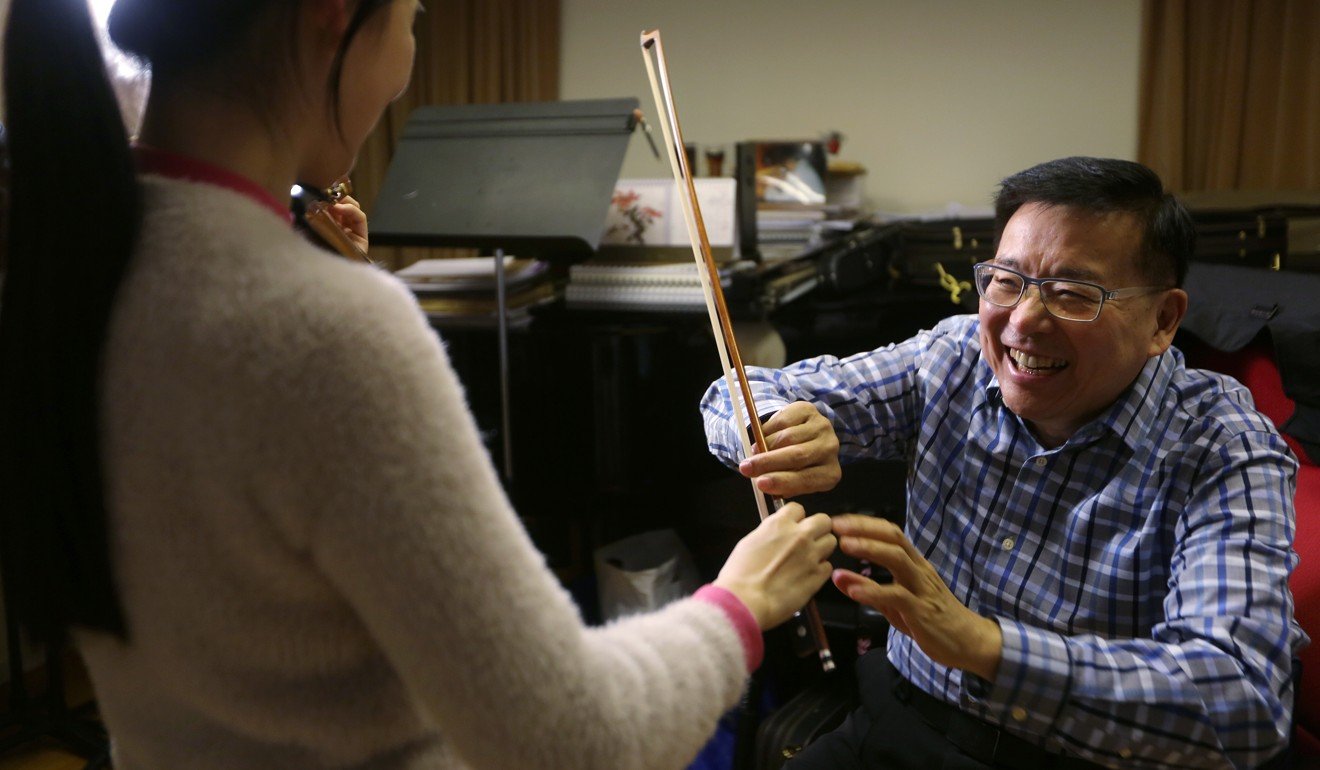
“Even after travelling for five hours down here from Foshan for a lesson, she is still smiling away. She pulls her violin out and can’t wait to play. She loves it.”
The teenager’s most striking characteristic is her joy for life. Constantly giggling and laughing, her personality has helped her cope with a disability that would destroy others.
Yijie was born visually impaired and her sight slowly deteriorated over time until she became completely blind two years ago, when she was 15 years old.
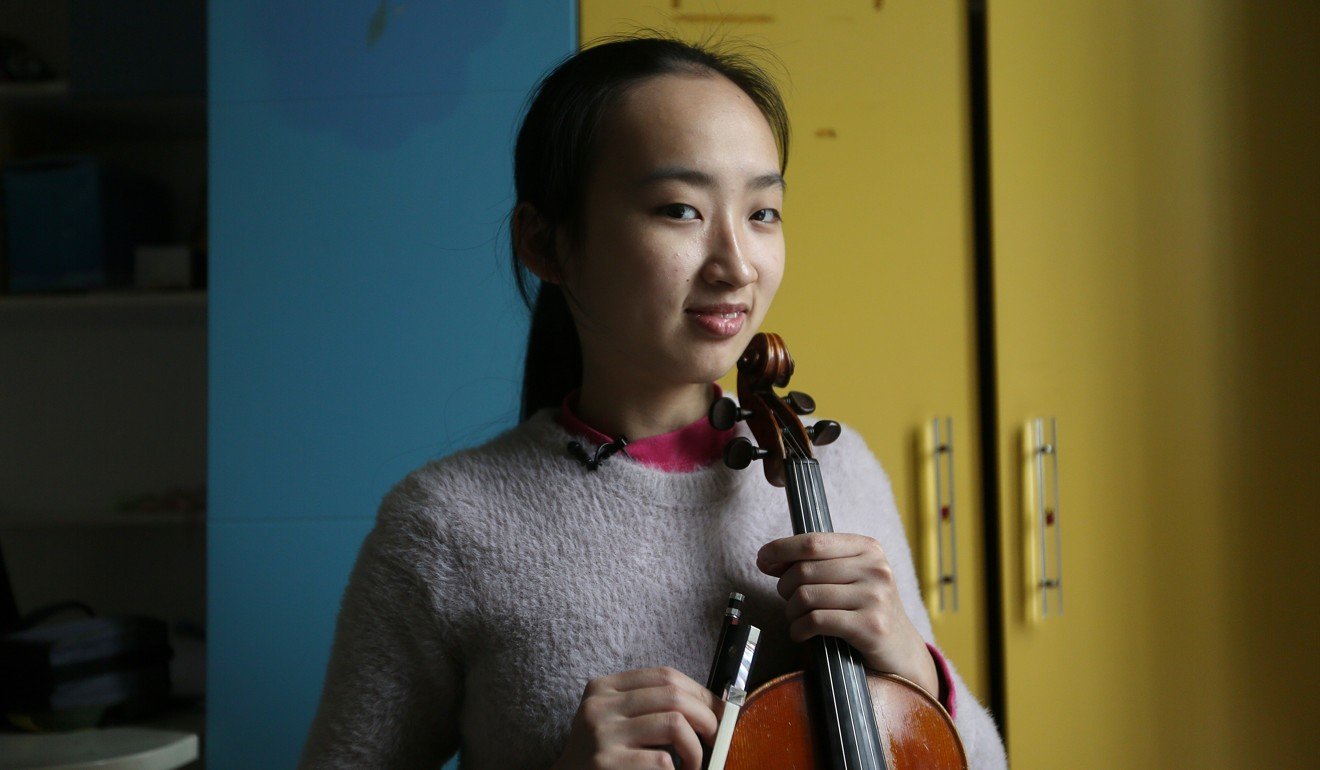
It’s to her family’s credit that they would not give up on her dream of playing the violin as her sight gradually failed. Yijie’s mother worked as a schoolteacher until her daughter’s condition got worse. Her father, Ding Guoquan, is also a schoolteacher, and she has an 11-year-old brother called Ding Erjie. They all had to pull together when times got tough.
Even after travelling for five hours down here from Foshan for a lesson, she is still smiling away. She pulls her violin out and can’t wait to play. She loves it
“I remember years ago holding Yijie by the hand to help guide her along the street, while carrying her brother on my back. We did what we had to do,” her mother says.
They soldiered on, and as Yijie grew older and her sight got progressively worse, her family got her a typoscope to help her enlarge and magnify the music she was reading.
A typoscope is an inexpensive piece of durable black plastic with a cut-out that helps the user focus on the sentence they are reading. This can be enlarged to help them follow the reading line; keep their place on the line; and track back to the beginning of the next line. It also helps draw attention to where to look on the page.
Yijie’s mother would first write out the musical notes by hand on a sheet of paper and put it into the typoscope so she could see it clearly.
Although she became completely blind two years ago, she was not about to give up. Yijie was now a talented violinist – it was just a matter of finding another way of learning other than reading music.
She did this playing by ear, and collaborating with fellow music students in Foshan to learn the right rhythm for certain pieces, which she would memorise.
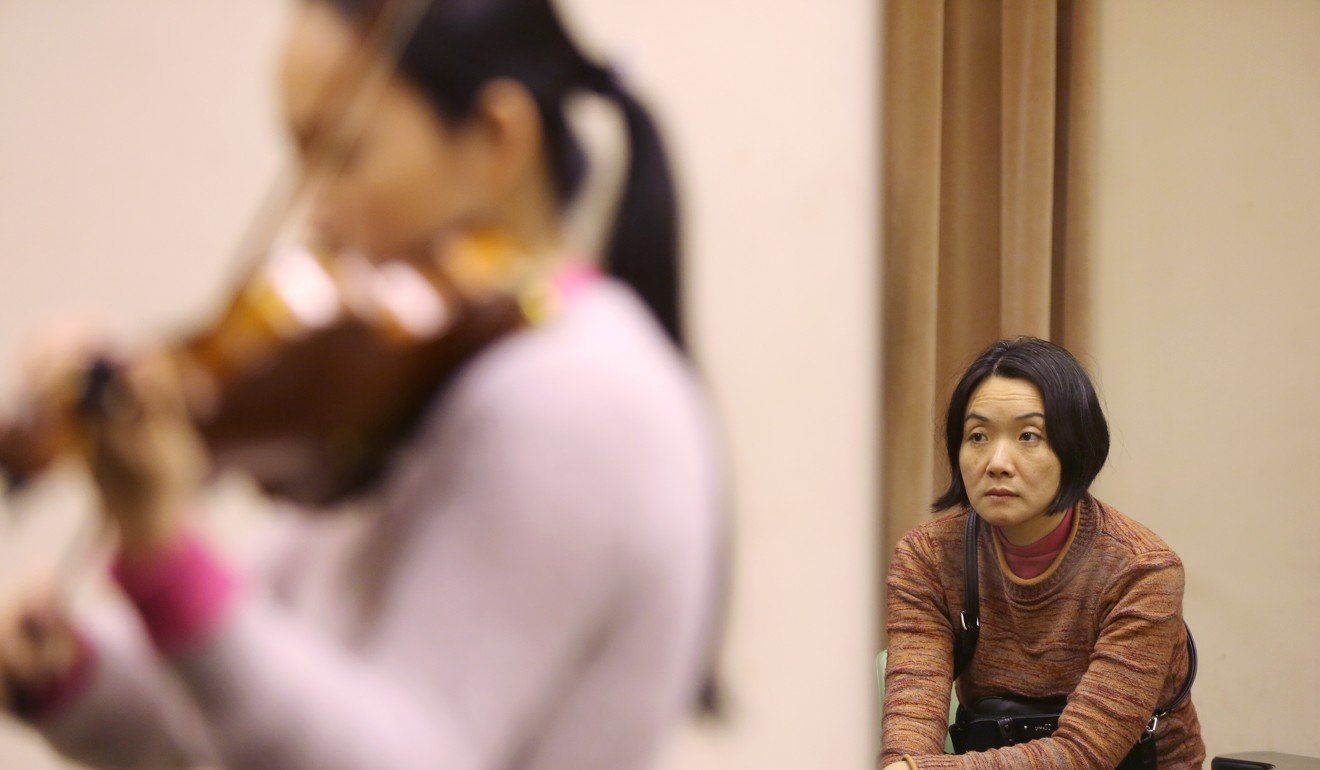
“She would help them to stay in tune and other technical things, while they would tell her about the specific notes in new pieces they were learning. Classical music is not played very often by students in China, so she would teach them pieces by Mozart or Bach.
“That’s why I find it so rewarding working with her, because she refused to give up. Sometimes I forget she is blind because she is so enthusiast and positive. She never has a smile off her face and she is constantly laughing. Her attitude is always so good.”
Since travelling to Hong Kong in September, Yijie has grown to like the city, describing it as “different” to living in China.
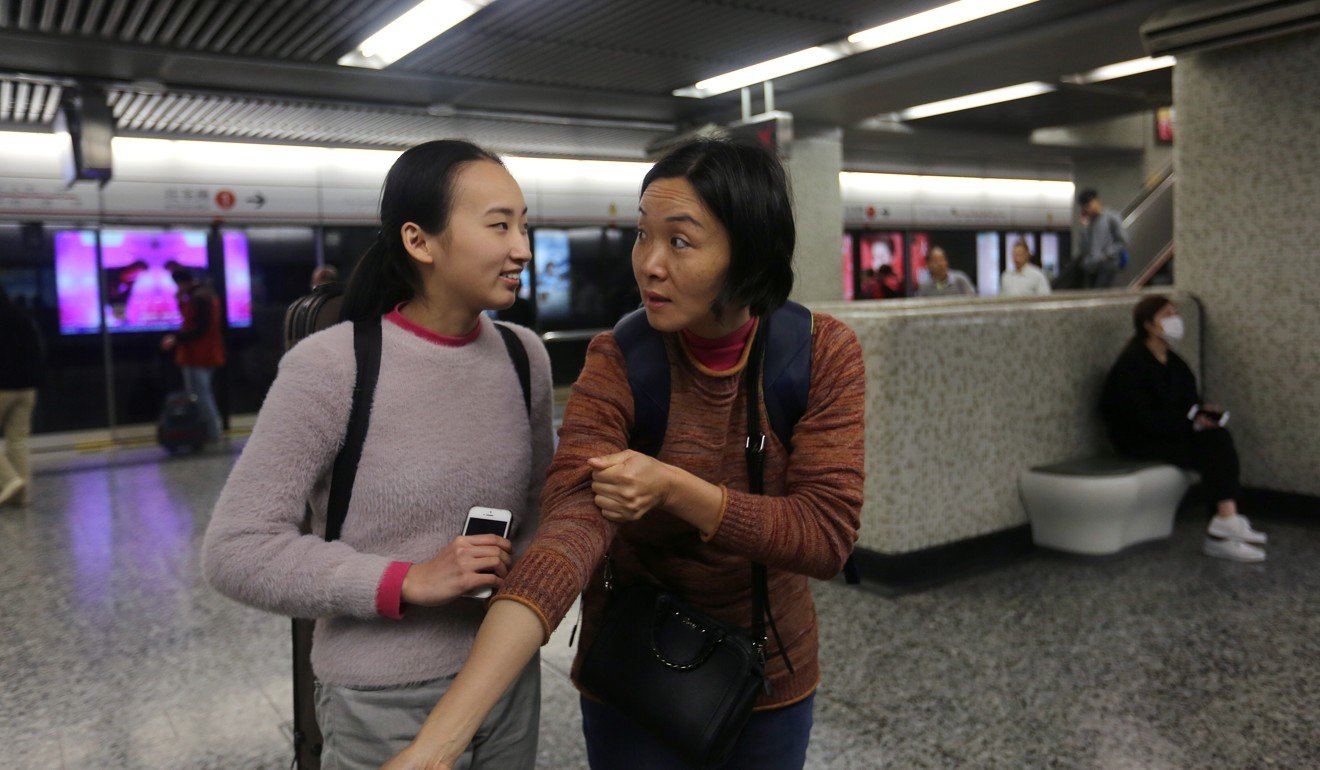
“For example, everyone gets on and off the subway [MTR] in an orderly way. In China you could easily get knocked over. People seem a little more polite here.”
It is good that Yijie has grown to like Hong Kong, because from September this year she will be a full-time senior student at the Academy for Performing Arts for two years, and will live in the academy’s dormitory in Sheung Wan.
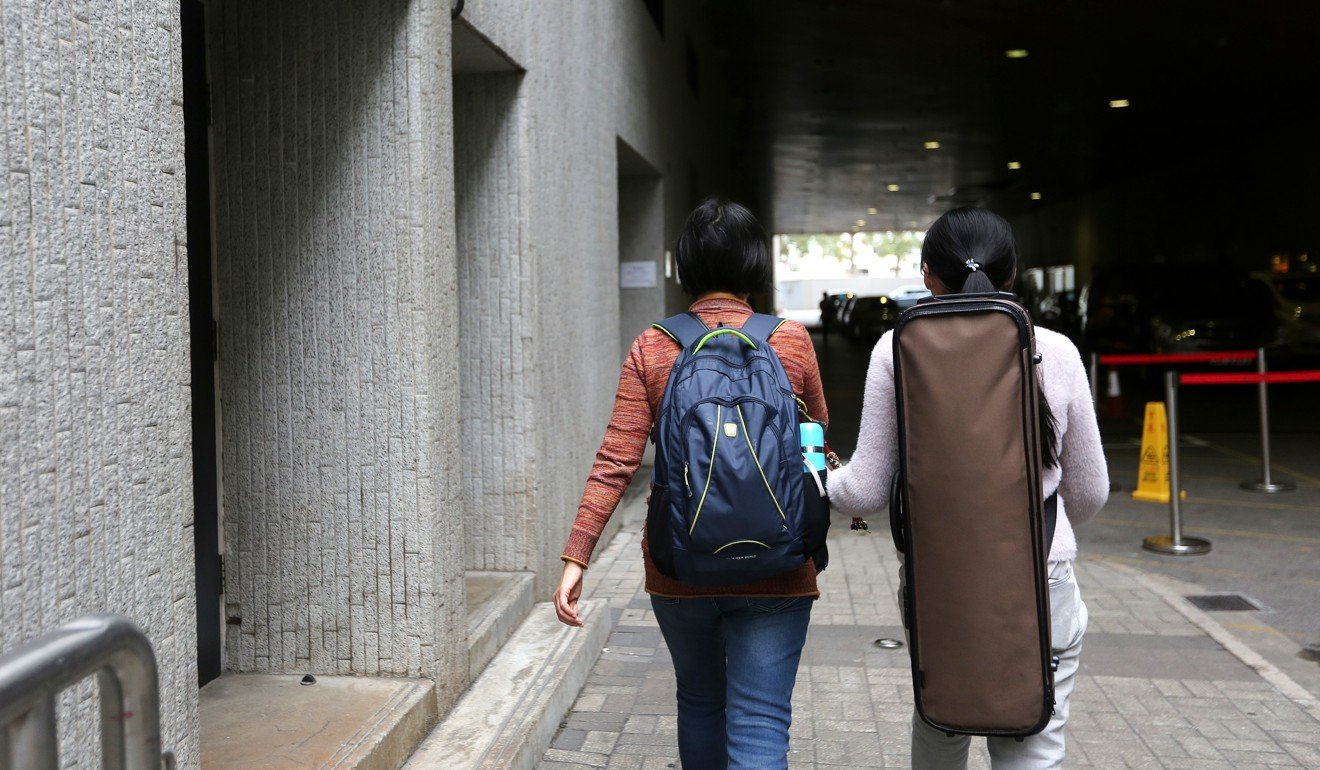
The prospect of being away from her loving family for the first time is not daunting for the 17-year-old, though. Naturally her mother admitted to being a little worried at the prospect, but this very confident and independent teenager can’t wait to start out on her own journey in life.
“I really want to do this. There is no school in China for people with disabilities like me, so it is a great opportunity. I am very lucky,” she says.
Her ambitions do not end there. After her two years at music school in Hong Kong, she has her heart set on going to the US and studying at the Curtis Institute of Music in Philadelphia – and one day even playing in Carnegie Hall in New York.
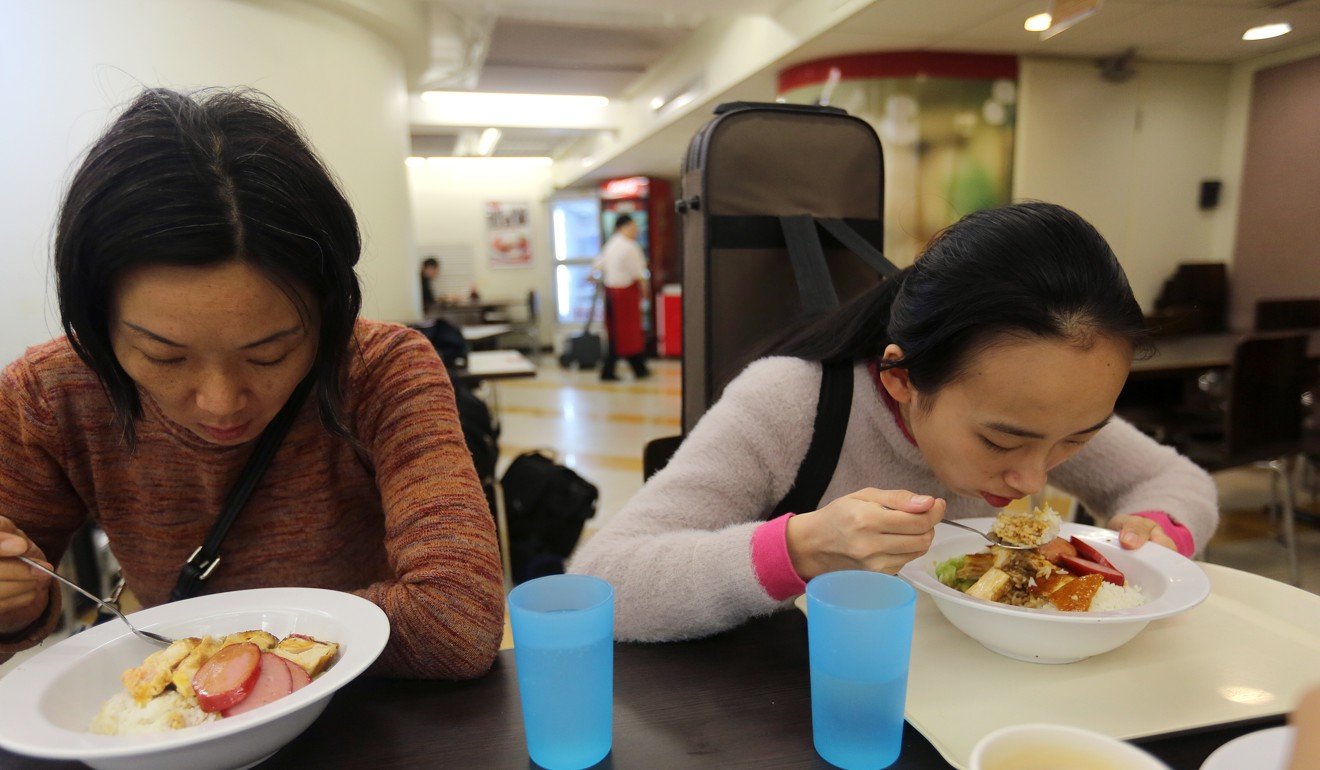
Classical music is her passion, and she also enjoys playing traditional Chinese folk songs, but she showed her versatility by playing the beautiful theme from the film Schindler’s List in a guest appearance at the Ireland Funds China Gala Dinner in Hong Kong in November, where she received a standing ovation.
Asked how this made her feel though, she gives a surprising answer. “It made me feel happy but unhappy. I think I could have played it better.”
Being a perfectionist, Yijie believes this was not her best rendition of the piece, no matter how much applause she received.
“She is a very positive person but she sets herself high standards and can be very critical of herself. Every time, she wants to play perfectly,” Ma says.
“I have told her it is good to be critical of yourself when you practise, as it is the only way you will get better, but on occasions like this enjoy it because you are bringing other people joy.
“I’m here to teach her to play so that she can be happy and can end up playing to the standard she wants to play at.”
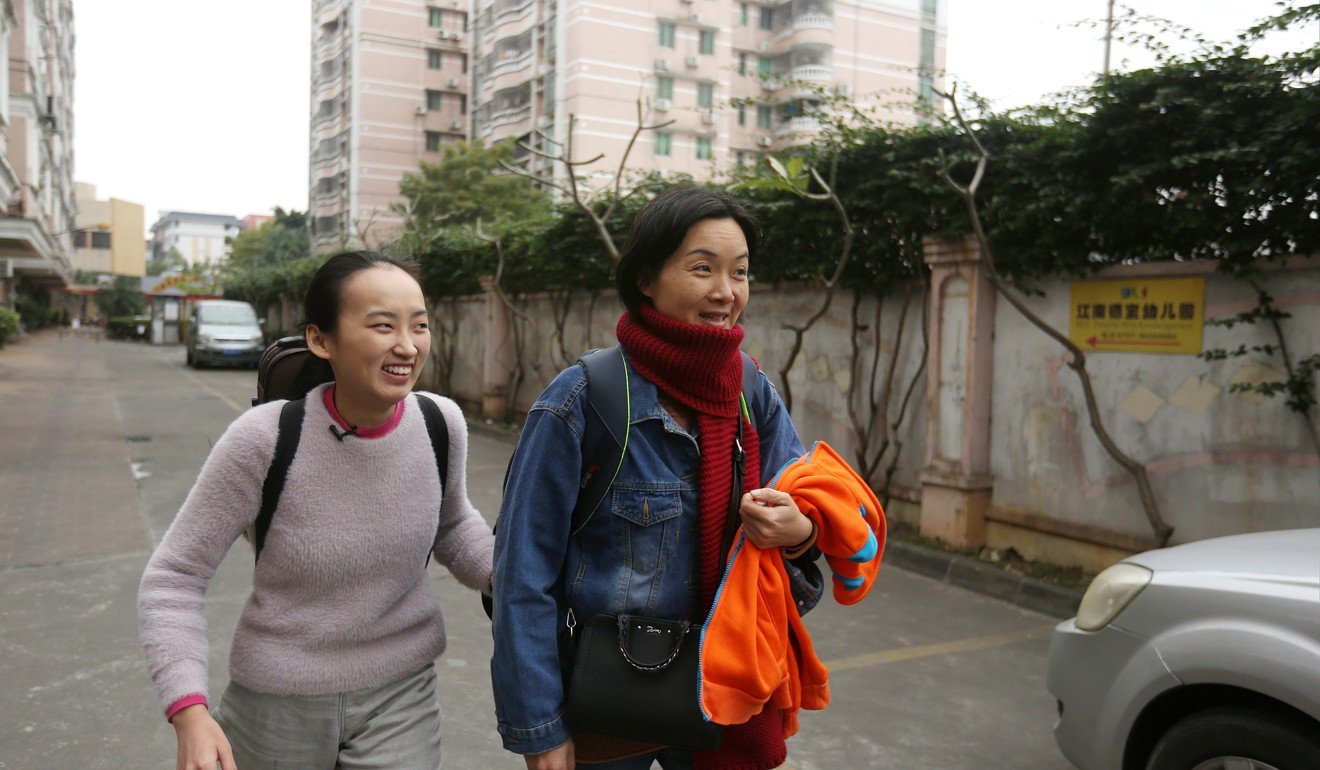
“It’s refreshing because I have never taught a violinist who is blind before so I had to teach differently. There are times she can be very hard on herself and for this reason I don’t want to be too critical. The truth is she is an inspiration to other students.”
And her goal of playing in Carnegie Hall one day? “With this young woman, anything is possible,” he says.